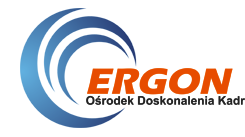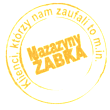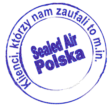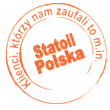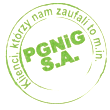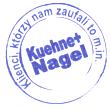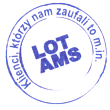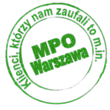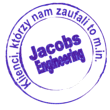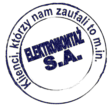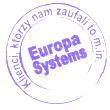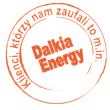Welcome to IRATA training
Earn your IRATA rating
If you are planning to work in rope access, come to our accredited centre for the IRATA course. The training enables you to gain the international certification necessary for industries such as industry, energy, construction or offshore, among others. The IRATA certificate increases your value on the job market and opens doors to projects all over the world!
Why it's worth it:
- an international certificate valued by employers,
- real technical and rescue skills,
- possibility to work in Poland and abroad,
- training provided by experienced instructors,
- a fast track to a stable and well-paid job.
About the IRATA certificate
IRATA certification is recognised as the highest standard of qualification in the industrial rope access industry.
What is the reason for confidence in the IRATA system? For more than 25 years, the organisation has been improving its working methods and safety systems, based on data collected from real incidents and accident analyses. The results of these activities are published in annual reports - for example, the 2015 report shows that with almost 24 million working hours (including one million training hours), there were only 28 accidents. Such a low incident rate demonstrates the effectiveness of the procedures, which convinces both trainees and employers that it is worth investing in this form of qualification.
IRATA accredited centre
ERGON is an IRATA accredited centre, valued for its high quality training and convenient location with easy access. Our staff is made up of experienced trainers, including assessors, whose commitment and didactic approach translate into a high level of teaching and very good exam pass rates. We train practically and effectively - without compromise.
IRATA certificate
After completing the IRATA course and successfully passing the exam, the participant receives three documents: a certificate, an identification card and a logbook.
The documentation is issued in English and sent by IRATA's UK headquarters. Our office oversees the process - all of it is forwarded to the students via the Polish Post Office, ensuring a smooth and hassle-free delivery of the documents to each graduate.
For what period
The IRATA certificate has a specific validity - it is valid for a period of three years from the date of issue. There is a specific expiry date on the document, which is also the last day on which recertification can be undertaken.
Once this deadline is passed, the technician loses the validity of his/her qualification and cannot take the exam for a higher level of certification. Therefore, it is worth keeping an eye on deadlines and signing up for refresher or qualification development in good time.
IRATA training, levels L1, L2 and L3
IRATA's training structure consists of three levels: Level 1, Level 2 and Level 3 (abbreviated as L1, L2, L3). Each trainee starts at Level 1 and, over time, can choose to renew their rating or take higher level training.
A typical training course lasts five days - four days of practical and theoretical instruction and one day dedicated to the exam. Each day of the IRATA course is approximately 8 hours of intensive study. The exam is conducted by an independent examiner from outside the centre.
The training programme covers both practical and theoretical issues.
IRATA Level 1 (L1)
Rope access technician - basic level
An IRATA Level 1 qualified person is able to independently perform tasks using rope techniques, both vertically and horizontally. He/she has a basic knowledge of workstation configuration and basic rescue skills.
According to the requirements of the IRATA system, an L1 technician should work under the supervision of an L3 level person if they are performing tasks within the structure of an IRATA-accredited company.
Prerequisites:
- at least 18 years of age,
- no health contraindications to working at height.
No medical certificate is required at the training stage - a self-signed declaration of no contraindication is sufficient. No previous work experience is required.
Career opportunities for IRATA L1 certified technicians:
- Offshore platforms and installations - maintenance, inspection and painting work under the supervision of a Level 3 technician.
- Bridges, towers, masts - inspection, cleaning and minor repairs to steel structures.
- Wind power plants - turbine cleaning, maintenance work and support for installation of new components.
- Industrial plants - maintenance work on industrial installations such as pipelines or tanks.
- Large format advertising - installation and maintenance of advertising at height.
- High-rise buildings - window cleaning, façade repairs and other maintenance work.
- Petrochemical industry - painting and cleaning work in refineries and chemical plants.
- Shipbuilding - maintenance and repair work on ships and in shipyards.
- Aerospace industry - inspection and maintenance of airport infrastructure.
- Rail industry - maintenance work on railway infrastructure, such as track cleaning or signal repair.
IRATA Level 2 (L2)
Rope access specialist - intermediate level
The L2 level technician has developed skills related to rope work, position preparation and participation in rescue operations. He/she has knowledge of advanced rope system configurations and evacuation solutions.
As at L1 level, all tasks are performed under the supervision of an L3-certified person - as required by the IRATA organisation.
Prerequisites:
- valid IRATA Level 1 certificate,
- minimum of 1,000 hours of documented experience in logbook,
- at least 12 months from the date of the L1 certificate to the date of taking the L2 exam.
Career opportunities for IRATA L2 certified technicians
With IRATA L2 level, you can perform positions and jobs that require supervision and coordination of a team working on the ropes, which is not available for L1. Specific roles and tasks exclusive to IRATA L2 are:
- Rope Access Supervisor - Responsible for the planning, supervision and safety of the team's work at height.
- Technician performing work in more difficult conditions - e.g. more complex tasks on industrial installations, where more knowledge and experience is required.
- Work requiring decisions on safety and working methods on ropes - L2 can independently assess risks and make changes to work organisation.
Examples of industries that may require L2 level:
- Wind energy - work on turbines often requires supervision and coordination of the entire team, which requires L2 authorisation.
- Oil and gas industry - installations and offshore platforms require technicians capable of managing rope work and making decisions in emergency situations.
- Industrial construction and installations - Larger, complex projects require L2-qualified people to supervise teams and work in challenging environments.
- Rescue work at heights - An experienced L2 technician is often needed as a rescue team leader.
- Work on telecommunications masts and power towers - due to the scale and risk, L2 qualified persons are required to supervise and carry out the work.
IRATA Level 3 (L3)

Rope access supervisor - advanced level
The IRATA Level 3 technician has full responsibility for the rope work and the team he or she leads. He or she has complete knowledge and skills from Levels 1 and 2, as well as knowledge of health and safety regulations, the IRATA certification system and advanced rescue methods.
As rope works manager, L3 plays a key role in ensuring safety and compliance with procedures.
Prerequisites:
- valid IRATA Level 2 certificate,
- at least 1,000 hours entered in the logbook since passing the L2 exam,
- minimum of one year's experience since L2 certification,
- completed first aid course, which is compulsory for the supervisory role.
Career opportunities for IRATA L3 certified technicians
IRATA Level 3 (L3) certified technician is the highest level in rope access, which opens up the most responsible and advanced career opportunities, such as:
- Rope Access Supervisor Level 3 - Full responsibility for managing and supervising entire rope access operations, including work planning, risk assessment and training and certification of lower level technicians.
- IRATA trainer and examiner - Providing training, certification and assessment of candidates for L1 and L2 levels.
- Consultant on safety and rope access methods - Development of safety procedures, audits and technical advice for companies carrying out work at height.
- Specialist for the most demanding and risky tasks - working on extremely difficult structures and high-hazard sites where full L3 experience and skills are required.
Direct entry level 2 & 3
System Direct Entry (abbreviated as DE) allows those with extensive experience in working with rope techniques to obtain IRATA certification at L2 or L3 level without having to pass the earlier grades.
This process consists of several stages: First, the candidate prepares a dossier proving his/her qualifications and work experience, then sends it to the IRATA office. Once approved, the relevant training and final examination can be taken.
For L3 level, an additional requirement is to provide a guarantee of employment with an IRATA-certified company. It is precisely because of the difficulty of meeting this condition that most candidates choose to go directly to L2 level only.
DE L2 requirements:
- Documented minimum 1,500 working hours on the ropes within last 18 months,
- confirmation of systematic performance of duties in an industrial rope access environment.
IRATA refresher training
After three years of certification, and before they expire, rope access technicians must renew their qualifications to continue working. This process involves four days of practical training at the appropriate level and a one-day assessment conducted by an independent IRATA-accredited assessor.
During the training, participants focus on practical exercises that refresh and consolidate the necessary skills.
IRATA refresher training
Supplementary training is designed to recall and consolidate acquired competencies at any level. The time and scope of the exercises are determined on a case-by-case basis, and in some cases it is necessary to repeat the full course with an examination by an independent assessor. The obligation to undergo such training applies to technicians who have not worked at height for a period of six months or more or who work irregularly.
IRATA training schedule
Questions and answers (FAQ):
What is the difference between the different levels of IRATA - L1, L2 and L3?
IRATA Level 1 is the basic level for working on ropes under supervision. Level 2 is for technicians with experience who can perform more complex tasks independently and support supervision. Level 3 is the highest level, entitling you to act as a team leader, supervising work, planning and risk assessment. Each level requires a certain number of hours of experience and confirmed days of work.
Will I receive an international IRATA certificate after the course?
Yes, after passing the exam, the participant receives an IRATA international certificate, valid for 3 years. This document is recognised by employers worldwide in industries requiring work at height. The package also includes a logbook and technician identification card.
How long is the IRATA certificate valid?
The IRATA certificate is valid for 3 years from the date of issue. After this time, you must recertify at the same level or apply for a promotion to a higher level. Maintaining active status also requires regular logging of hours in the logbook.
Do I need to have experience working at height?
No, no previous work experience at height is required for L1 level. General physical fitness and no health contraindications are sufficient. The IRATA course at this level covers all the basic techniques and principles of safe work.
Is the IRATA certificate recognised worldwide?
Yes, the IRATA certificate is recognised and accepted globally, especially in industries such as energy, offshore, industrial construction and telecommunications. The IRATA system is based on uniform standards and training procedures, which guarantees its recognition by international employers. It is one of the most highly regarded certifications in the field of rope access.
